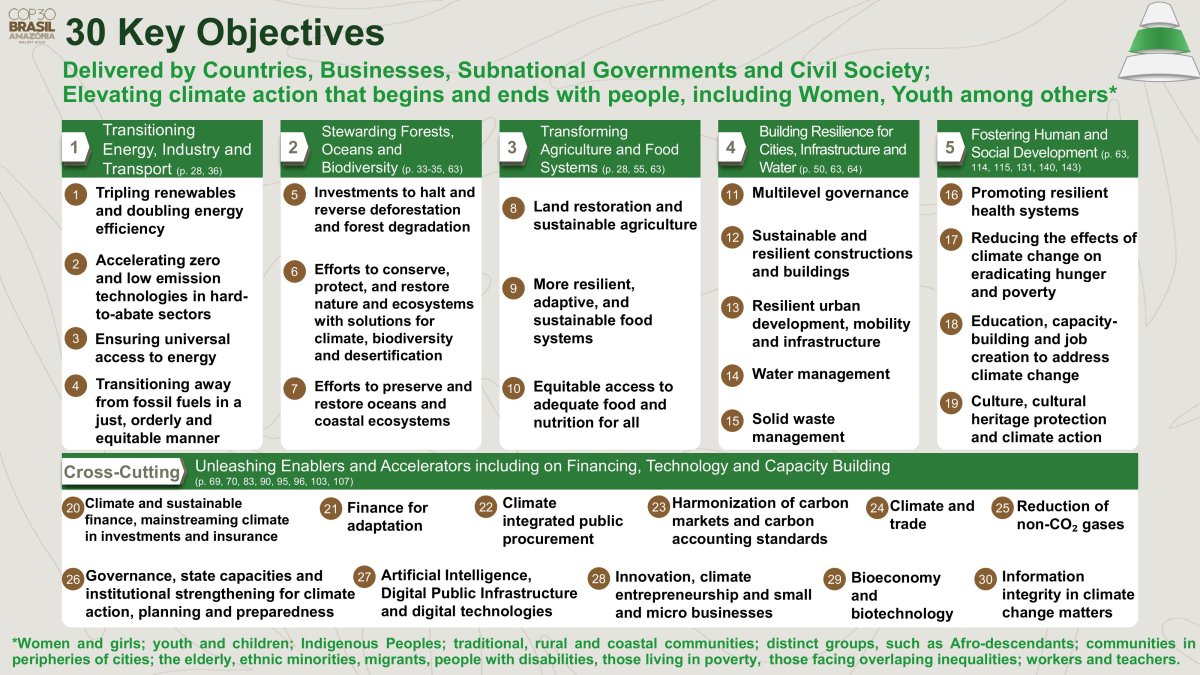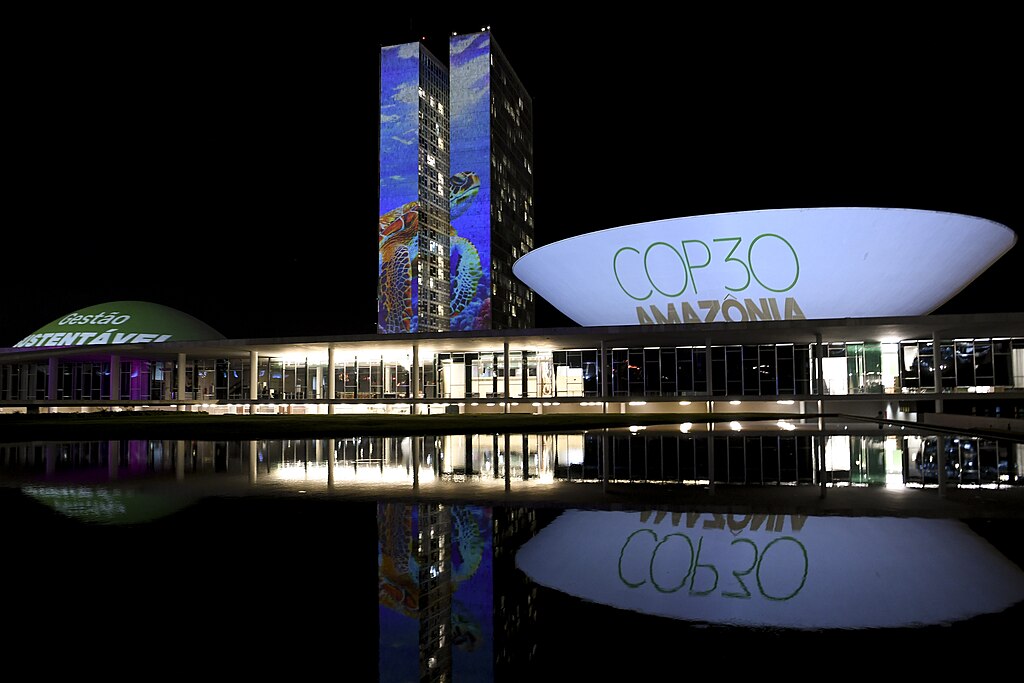Underscoring that it is only the third time that culture is part of the COP discussions, COP30 organisers celebrate inclusion of culture as part of the climate action agenda.
“This is the first time that culture has been included in the narratives of the Action Agenda as an important initiative to expand and mobilize,” said Brazil’s Minister of Culture, Margareth Menezes, on Wednesday, 12 November, as international artists, politicians and representatives of the indigenous communities were brought together into a COP30 event including dialogues and performances on culture’s driving power towards climate change social mobilization.
The event included the launch of the Plan to Accelerate the Integration of Cultural Heritage into National Adaptation Plans (NAPs), led by the Group of Friends of Culture-Based Climate action. The Plan aims to (i) increase number of countries that explicitly include cultural heritage in their NAPs; (ii) establish operational guidance and tools for heritage-inclusive adaptation planning; and (iii) support planning in pilot countries.
“We need culture and art because they are the voice of our democracy. Art and culture have the power to mobilize, to move us emotionally, to critique,” stated Germany’s former Minister of Culture, Claudia Roth.
Culture and Cultural Heritage in the 30 key objectives of the Climate Action Agenda
Aiming at moving “from negotiation to implementation”, COP30’s Climate Action Agenda is structured under five plus one thematic pillars, covering mitigation, adaptation, finance, technology, and capacity-building and including 30 key objectives (click on image to enlarge).

Culture and cultural heritage protection and climate action is set under COP30’s fifth thematic pillar on ‘Fostering Human and Social Development’.
Combatting Climate Change is embedded in everyday life of Indigenous’ Cultures
The People’s Summit (12-16 November) closed with a major climate justice march of 70,000 people in Belem’s streets. Yesterday, Monday 17 November, was the Indigenous Peoples’ Day at COP30. Indigenous massive protests in the background, the Government of Brazil announced the demarcation of ten Indigenous lands, meaning that their culture and environment will be legally protected in these areas.
Culture as everyday practice and community knowledge was embedded in indigenous advocacy initiative Circle of Peoples. The initiative was launched earlier this year aiming at ensuring indigenous’ qualified representation in the COP30 context and at increasing “recognition of the role of traditional territories and cultures in combating the climate crisis”, led by Sonia Guajajara, Brasil's Minister of Indigenous Peoples. Though COP30 was announced to have the largest ever presence of indigenous, only a 14% of Indigenous Brazilians are expected to access decision-making. Critics note lack of enablers to secure their equal participation in the dialogue, such as lack of translation, while their vibrant protests outside COP30’s premises, suggesting that record turnout and visibility do not necessarily translate to power.
Looking forward to Countries' Commitments
Culture and cultural heritage are at the heart of advocacy efforts by indigenous communities, intergovernmental initiatives, or creatives' coalitions, such as Julie's Bicycle, Climate is Culture, United Artists for Climate, Global Artivism Convening, Creatives for Climate, the previously mentioned Friends on Culture-Based Climate Action and the British Council’s initiatives on the Climate Connection and Creative Commissions for Climate Action.
Beyond public statements and the Plan, binding decisions on elevating culture’s role in the international climate change agenda have not been announced yet by COP30. Among COP30’s outcomes so far, indirect links with culture may be traced in the Declaration on Information Integrity on Climate Change, as linked with media freedom and pluralism.
The proceedings of COP30 are about to finalise on Friday the 21st of November. A milestone for establishing culture in the climate change agenda was already celebrated during COP28 in 2023, when culture and heritage formed part of the Global Goal on Adaptation. Among others, COP30 is expected to announce indicators list uder the Paris Agreement, potentially including indicators on cultural heritage and traditional knowledge.
Find more here
Agência Senado from Brasilia, Brazil, CC BY-SA 4.0, via Wikimedia Commons









